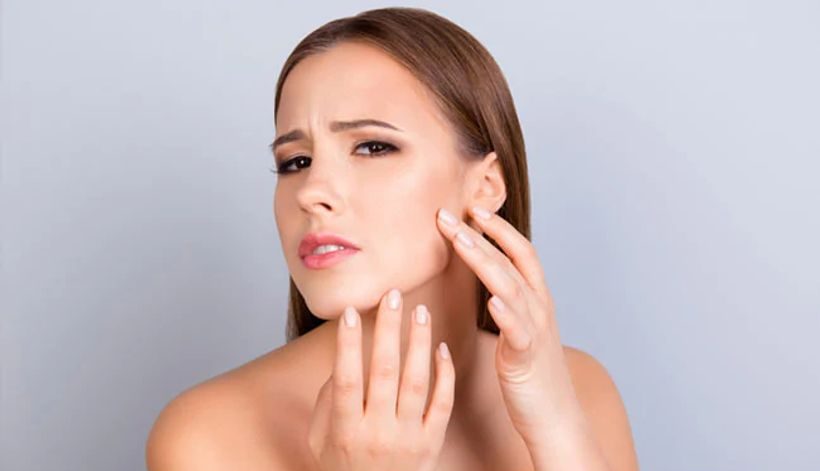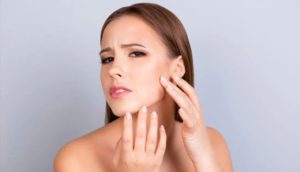
 Are you addicted to your devices? It is not just harmful to your eyes but your skin health too. Read here as expert explains the effect of blue light on your skin.
Are you addicted to your devices? It is not just harmful to your eyes but your skin health too. Read here as expert explains the effect of blue light on your skin.
When it comes to skin health, UV radiation is considered to be one of the most damaging environmental factors. The high energy ultraviolet radiation emitted by the sun is one of the most prominent causes of skin ageing. You might be aware of the need to protect the skin from UV radiation, but not many know about the ill-effects of blue light on our skin? Blue light is a part of the visible light spectrum and the sun is the main source of blue light. However, your ubiquitous digital devices, computer screens and even LEDs also expose you to a constant stream of blue light. This blue light not only has ill-effects on eye health but also damages the skin and hastens the breakdown of skin’s vital protein fibres.
Digital devices are everywhere today. From working on computers throughout the day to being hooked to social media till late in the night, many spend almost half their lives in front of digital screens. With screen time going up significantly in recent years, exposure to blue light has increased dramatically. Skincare products and creams offering blue light protection are the latest trends the skincare industry is witnessing. So, should you be worried about constantly living amidst blue light? More importantly, can you do something to protect yourself from its effects?
Blue light: Know the effect on your skin and how to protect your skin
What exactly is blue light?
Blue light as the name suggests is the spectrum of visible light that falls in the blue to violet category. Also known as high energy visible (HEV) light, blue light comprises of short wavelength radiation that comes with high energy. In fact, it is the blue spectrum of the visible light that causes the sky to appear blue.
While the sun is the main source of blue light as all other sources of visible light, our digital devices including smartphones, tablets, computers and LEDs compound our exposure to blue light throughout the day. Blue light and its ill-effects on the eyes have been well known for some time now. However, its negative effects on the skin have come into prominence only in recent times.
Blue light and skin
Evidence suggests that prolonged exposure to blue light causes damage to skin cells, impedes the skin barrier function and may lead to premature ageing, much like UV radiation does. Prolonged exposure to blue light also hastens the breakdown of collagen and elastin – skin’s vital scaffolding proteins that are responsible for firm and youthful skin. Skin ageing happens when the collagen and elastin fibres start breaking down faster than they are generated. The result is skin laxity, premature ageing and loss of firmness and elasticity. Blue light exposure may also induce hyperpigmentation and melasma on the skin.
An indirect effect of blue light is its interference with the body’s natural circadian rhythm. Blue light blocks the sleep hormone melatonin and tends to energise the individual who is exposed to it. This is why looking at digital screens till late in the night affects your sleep and may even cause sleep disorders by tampering with your natural body clock. Sleep deprivation in turn further accentuates skin ageing and breakdown of collagen.
Can you do something about it?
Usage of digital devices has gone up exponentially over the past year even among students and children. Blue light skincare has therefore become an important element of skin protection. While you cannot avoid blue light exposure from digital devices, some conscious steps can be taken to mitigate its effects.
Limiting non-working screen time is one of the steps. Cutting overall screen time is not only good for the skin but for your overall health.
- Using blue light shields on your devices is another important intervention that can help reduce your overall exposure to blue light. Several digital devices today also come with the option of reducing blue light and switching on the yellow light. If your device has this so-called ‘night mode’, do use it regularly to reduce your exposure.
- Avoid taking your devices to bed at any cost. Remove mobile phones and other devices at least half an hour before bedtime to allow your body to follow its normal sleep-wake cycle. Not only is this good for the body but also for the skin because it is during sleeping hours when the skin repairs and regenerates itself.
- Skincare products or treatments that boost collagen generation are another food way of dealing with premature ageing. Apart from collagen-boosting creams, a new skin bio remodelling treatment called Profhilo helps boost the skin’s ability to produce collagen and elastin by replenishing its lost reserves of hyaluronic acid. If signs of ageing are troubling you, you may try out this procedure.
- Zinc oxide based sunscreens also offer protection against blue light. Wearing sunscreens and using antioxidant-rich skincare products that will help scavenge free radicals are other important ways to reduce blue light damage.
So, take a digital break for healthy skin!







